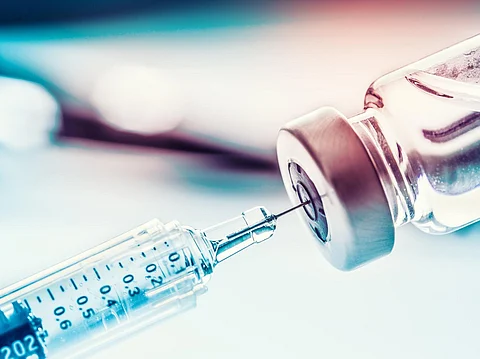

Florida Surgeon General Dr. Joseph Ladapo has called for a halt in the use of COVID-19 mRNA vaccines, citing an “exit disclaimer discovery" of "billions of DNA fragments per dose" in the Pfizer and Moderna shots.
Ladapo, along with 44 elected officials and 54 candidates running for office across the US, has joined the Association of American Physicians and Surgeons (AAPS) in calling for the injections to be pulled from the market in light of recent research findings.
In a statement posted to the Florida Health website Wednesday, Florida’s Surgeon General made public a letter he wrote to the directors of the US Food and Drug Administration (FDA) and Center for Disease Control and Prevention (CDC) December 6 “regarding questions pertaining to the safety assessments” of the shots considering this conclusion.
He sounded the alarm on nucleic acid contaminants, particularly in the presence of lipid nanoparticle complexes, and Simian Virus 40 (SV40) promoter/enhancer DNA.
Lipid nanoparticles, which act as a vehicle for the delivery of the mRNA into human body cells, could act in the same way with the contaminant DNA, Ladapo said. "The presence of SV40 promoter/enhancer DNA may also pose a unique and heightened risk of DNA integration into human cells.”
Simian Virus 40 (SV40) DNA sequence is a "human pathogen” that “induces cancer,” which Epoch Times reported to be present in the Pfizer COVID-19 vaccine after a confirmation from Health Canada on November 1 that the DNA plasmid, which is used to amplify the mRNA technology, is found in the vaccines.
Health Canada claimed at the time the vaccines are still safe because the body breaks it down, however the sequence was linked to cancer after it was discovered in patients who had received the Polio vaccine in the late 1950s.
In 2007, the FDA published “guidance on regulatory limits for DNA vaccines,” according to the Florida Health website, outlining “important considerations for vaccines that use novel methods of delivery regarding DNA integration.”
“DNA integration could theoretically impact a human’s oncogenes, the genes which can transform a healthy cell into a cancerous cell,” the FDA wrote in 2007, per Ladapo’s letter to the American health bodies. “DNA integration may result in chromosomal instability” and “affect unintended parts of the body including blood, heart, brain, liver, kidney, bone marrow, ovaries/testes, lung, draining lymph nodes, spleen and the site of administration and subcutis at injection site.”
“The presence of SV40 promoter/enhancer DNA may also pose a unique and heightened risk of DNA integration into human cells,” the FDA found.
The FDA responded to the Surgeon General “providing no evidence that DNA integration assessments have been conducted,” though the FDA itself recommended they be done.
The Surgeon General pointed out the FDA had “recognized unique risks posed by DNA integration, the efficacy of the COVID-19 mRNA vaccine’s lipid nanoparticle delivery system and the presence of DNA fragments in these vaccines,” and therefore “it is essential to human health to assess the risks of contaminant DNA integration into human DNA.”
“Instead, they pointed to genotoxicity studies, which are inadequate assessments for DNA integration risk,” he said in the statement, adding “they obfuscated the difference between the SV40 promoter/enhancer and SV40 proteins, two elements that are distinct.”
Health Canada confirmed via email with the Epoch Times in October that the sequence SV40 is in the vaccine. The agency was willing to confirm the presence of SV40 only after scientists Kevin McKernan and Dr. Phillip J. Buckhaults, who warned the plasmid DNA could affect the human genome, raised the issue publicly earlier in 2023.
It was then “possible for Health Canada to confirm the presence of the enhancer based on the plasmid DNA sequence submitted by Pfizer against the published SV40 enhancer sequence.”
“The residual plasmid DNA is present in the final product as DNA fragments, due to the enzyme digestion step in the downstream process,” the email response from Health Canada added. “As such, the original risk benefit analysis that supported the initial approval of the Pfizer vaccine continues to be valid.”
The Food and Drug Administration said on Wednesday it had not identified any “safety concerns related to the sequence of, or amount of, residual DNA,” per New York Times.
